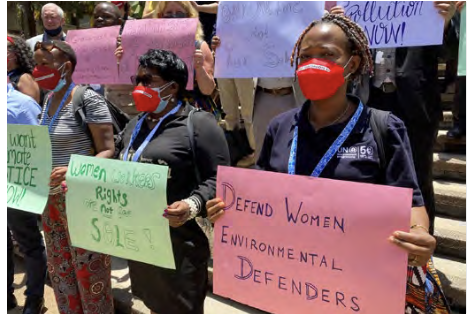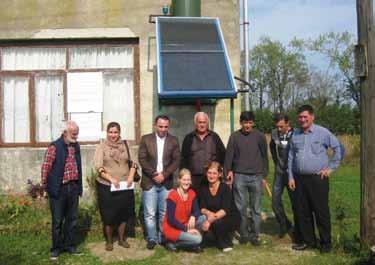Women’s leadership to reduce climate impact from chemical pollution

WECF and partners CEJAD, AEEFG, BIOM, WEP, NEXUS and Reaccion Climatic studied the gender-differentiated impacts of chemicals, plastics and waste in Bolivia, Indonesia, Kenya, Kyrgyzstan, Nigeria and Tunisia. They also displayed women-led good practices to reduce chemical’s climate impact and environmental pollution. Scoping- studies were carried out based on field-visits, interviews and data collection, analysing… Read More
